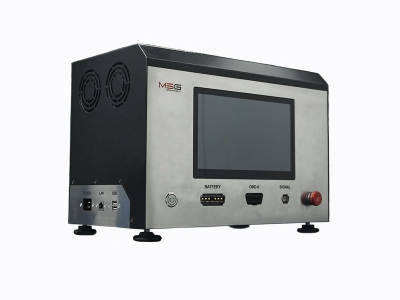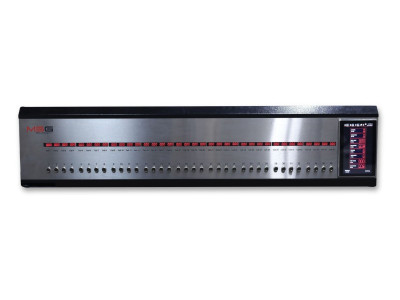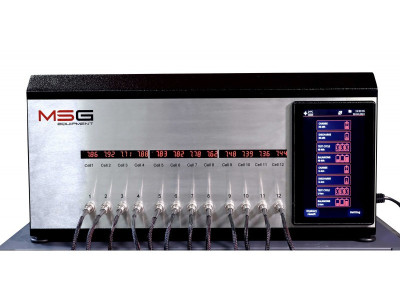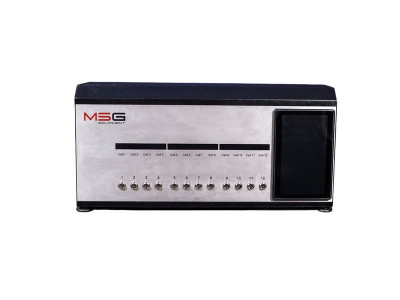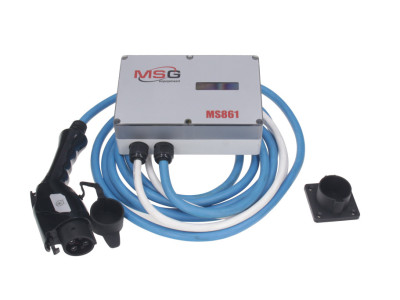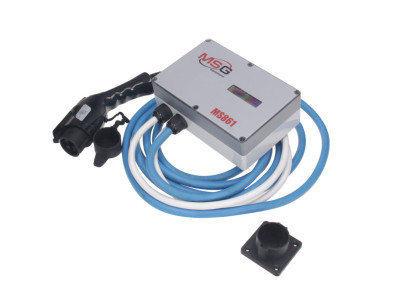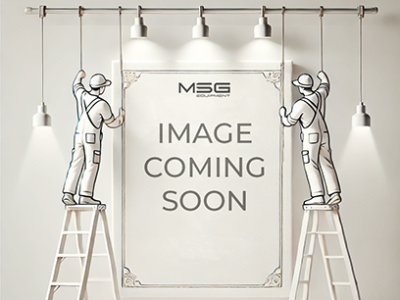Electric and Hybrid Vehicle Diagnostic Equipment
The growing popularity of electric vehicles and hybrid transportation creates new challenges for auto service centers. Modern electric vehicles are technically complex systems that require a professional approach to diagnostics and maintenance. MSG Equipment develops and manufactures specialized electric vehicle diagnostic equipment and hybrid vehicle testing equipment, enabling independent auto service centers to expand their range of services.
Types of Electric and Hybrid Vehicle Diagnostic Equipment
For comprehensive work with electric vehicles, auto service centers need specialized equipment of various types:
- High-voltage battery testers for diagnostic testing
- EV battery balancing equipment for battery module elements
- Systems for checking the capacity of nickel-metal hydride (NiMH) batteries
- Lithium-ion battery analyzer equipment
- Testers for working on "mild hybrid" (MHEV) batteries
- Equipment for determining the condition of LFP (LiFePO4) elements
- High-voltage battery monitoring and analysis systems
Functional Capabilities of Electric Vehicle Service Tools
High-voltage battery testers determine the actual capacity of battery modules. This allows technicians to identify modules with reduced characteristics that require replacement. Multi-channel diagnostic systems ensure simultaneous testing of multiple cells, significantly reducing the maintenance time for high-voltage batteries.
EV battery balancing equipment equalizes the voltage across series-connected elements of the battery. During an electric vehicle's operation, voltage differences develop between battery elements, affecting the overall battery capacity. Professional equipment restores balance between elements, extending the service life of the entire battery.
Modern diagnostic systems monitor battery charging and discharging processes, which are necessary for accurate determination of battery parameters. Particularly valuable is the regenerative discharge technology, where energy from tested batteries returns to the electrical grid, increasing both energy efficiency and environmental friendliness of the diagnostic process. These systems store test results in device memory for later analysis using specialized software.
Technical Specifications of Electric Vehicle Diagnostic Equipment
Modern EV repair diagnostic equipment offers the following technical capabilities:
- Multi-channel architecture with independent galvanically isolated testing channels
- Support for various battery types: NMC, NCA, LFP (LiFePO4)
- Voltage range: for NiMH up to 20V, for Li-Ion up to 4.2V per channel or 62V per module
- Ability to set charging and discharging currents
- Application of regenerative discharge technology with energy return to the grid
- Automatic operation mode according to preset testing scenarios
- Built-in resistive loads for measuring internal resistance
- Temperature monitoring of elements during diagnostics
- Network interface RJ45 (Ethernet): providing online functions for launching service tasks
- Support for working with BMS (Battery Management System) via RS485 bus
- Interaction with 48-volt "mild hybrid" battery systems via CAN bus
Safety Systems in Electric Vehicle Diagnostic Tools
Working with high-voltage batteries involves certain risks, so hybrid car diagnostic tools come equipped with comprehensive protection systems:
- Protection against overcharging and over-discharging of battery modules
- Prevention of element overheating during diagnostics
- Protection against incorrect connection (reverse polarity)
- Protection against short circuit of connected cables
- Monitoring of equipment temperature regime
- Automatic termination of diagnostics when parameters exceed allowable limits
These safety systems safeguard expensive battery modules during the diagnostic and maintenance process while ensuring the safety of auto service personnel when working with high-voltage components of electric vehicles.
Capabilities of Diagnostic Equipment for Various Electric Vehicle Types
Electric vehicle service tools are adapted for working with various types of electric vehicles:
- Full electric vehicles with high-voltage traction batteries
- Hybrid vehicles with nickel-metal hydride batteries
- Plug-in hybrids with increased capacity lithium-ion batteries
- "Mild hybrids" (MHEV) with 48-volt systems
- Electric vehicles with batteries based on LFP (lithium iron phosphate) elements
The versatility of hybrid battery capacity testers allows auto service centers to work with electric and hybrid vehicles from various manufacturers, providing a high level of service to owners of these vehicles.
Advantages of Using Professional Electric Vehicle Testing Equipment
Implementing specialized electric vehicle diagnostic equipment opens up several significant advantages for auto service centers:
- Providing a full range of services for high-voltage system diagnostics
- Ability to perform repair work previously available only at dealerships
- Accurate diagnosis of battery condition with detailed report generation
- Improved safety when working with high-voltage components
- Increased profitability of the auto service center through high-tech services
Recommendations for Choosing Electric Vehicle Diagnostic Tools
When selecting equipment for diagnosing and servicing electric vehicles, consider several key factors. First, focus on the range of vehicles serviced, determining the predominant types of battery systems. For service centers specializing in hybrid vehicles, equipment supporting both nickel-metal hydride and lithium-ion batteries will be optimal.
Also consider the scale of your auto service center and the planned volume of work with electric vehicles. For large service centers, we recommend equipment with numerous diagnostic channels allowing simultaneous testing of multiple modules. Small auto service centers may find compact solutions with fewer channels sufficient.
Pay attention to the capabilities of the software supplied with the diagnostic equipment. A user-friendly interface, the ability to create detailed reports in PDF format, and regular software updates are important factors when choosing equipment for electric vehicle diagnostics.
For detailed information on the characteristics, functionality, and cost of electric vehicle diagnostic equipment, please contact MSG Equipment specialists. Our consultants will help select the optimal solution meeting the needs of your auto service center and provide the necessary technical support.






